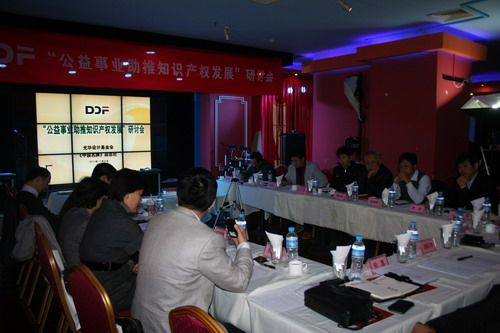On November 8th, the Charitable Foundations Promoting IP Development Seminar was held in Beijing by Dragon Design Foundation and China Top Brands Magazine, and at the same time China IPR Special Fund was launched.
 |
| Charitable Foundations Promotng IP Development Seminar |
In recent years, especially after the global financial crisis in 2008, IP development in China entered a stage of rapid development. IP is drawing more and more attention as a significant asset and core competitiveness of brands. Taking the National IP strategy outline as its guidance, the seminar held indepth discussions on issues such as the current situation for China’s IP development, how to promote IP protection through charities, how to safeguard the national brands and support the vulnerable brands, how to promote the commercialization of non-service patents and the operation model and orderly development of the charitable foundations. The attendees at the seminar believe that the brand new platform established by charitable foundations will be able to protect and help more and more enterprises and patent holders. Representatives from SIPO, Patent Protection Association of China (PPAC), China Industrial Design Association (CIDA), Intangible Asset Management Center of China University of Political Science and Law, Jordan Sports Co., Ltd, Hejun Vanguard Group, ccwlawyer.com and China IP magazine all made insightful statements in the seminar.

